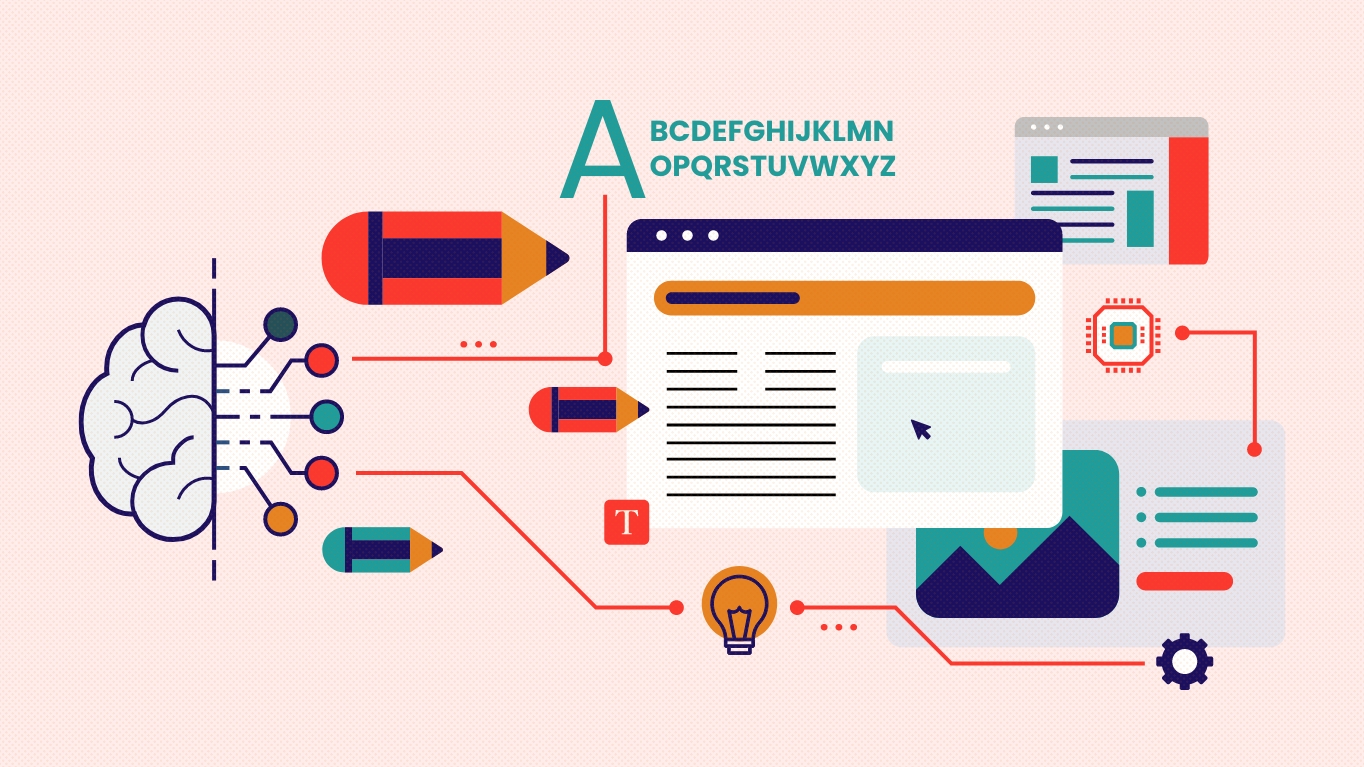Generative AI: 5 Ways to Use It Effectively in Content Production

Does artificial intelligence (AI) pose a threat or an opportunity for content producers? This is a highly relevant question, especially as generative AI and natural language processing (NLP) tools like ChatGPT or the new Bing continue to improve and gain ground. One thing is certain: these tools are not going to disappear and will continue to be used by businesses for many years to come. Instead of trying to fight against them, it is better to learn how to leverage them. Used in the right way, artificial intelligence acts somewhat like a super personal assistant that helps experts become more efficient and productive in their daily tasks.
Here are 5 ways for content creators to increase productivity with generative AI.
1) Inspire and propose new content ideas
No one is immune to the infamous blank page syndrome, where you can spend an entire day trying to find THE right idea for your content without quite getting there. Fortunately, generative AI tools often suggest themes and topics that, while not perfect, can certainly inspire you and serve as a good starting point. It's also a big plus for feeding your blog or social media editorial calendars!
Are you hesitating between several titles or formulations for your communications? Seek the opinion of AI! And make sure to get details to understand its reasoning. You may not necessarily adopt the proposed solution, but it could help you come up with ideas you might not have thought of otherwise.
During your next brainstorming session or the next time you encounter a creative block, ask AI to suggest some ideas to enhance your content and unleash your creativity!
2) Generate the V1 of content
A first draft of content generated by artificial intelligence may not be immediately usable, but it can serve as a solid foundational structure for your blog articles, product descriptions, or landing pages! So, don't hesitate to use generative AI to obtain a content framework that you can then revise and reuse as needed.
Remember that artificial intelligence tools may not be familiar with all fields of activity (even if they can give that impression), so it's important to fact-check the information they provide, even if it seems credible.
3) Automate Repetitive Tasks
Your workweeks may be filled with various tasks, some of which can be repetitive, tedious, or even alienating. You know, those long, low-value tasks that make you sigh but still need to be done? Well, the good news is that you can automate some of these disliked tasks in real-time with AI and its data analysis algorithms.
Here are some examples of tasks that can be automated with artificial intelligence:
- Correcting grammar or spelling mistakes;
- Extracting key information from a long text;
- Sorting and categorizing data and information on a single topic;
- Analyzing data on engagement, conversion, and content performance;
- Creating automated reports;
- Generating metadata (tags, titles, captions, and descriptions).
By leveraging AI to automatically perform certain functions, you can focus on more creative and strategic tasks that require greater expertise and human skill.
4) Optimize Content for Search Engine Optimization (SEO)
Both SEO specialists and beginners can benefit from artificial intelligence to optimize content. Generative AI tools can identify the most searched keywords, suggest new occurrences, assess the recurrence of terms used, and analyze competitor content. They can also evaluate the quality and relevance of backlinks, customize content based on search intentions, and ensure that the content is fully optimized for mobile devices.
However, artificial intelligence poses certain risks regarding the quality and reliability of generated information, which could lead to penalties for your content on search engines like Google. Search engines are increasingly emphasizing criteria such as EEAT (Experience, Expertise, Authoritativeness, and Trustworthiness) to assess the quality and relevance of content. The expertise of a specialist is, therefore, always necessary to evaluate, customize, and enrich content generated by artificial intelligence.
5) Revise and Edit Content
Have you worked and reworked your text so much that you can't see it clearly anymore? Ask AI to take a look! It can help you in several ways:
- Detecting errors that may have escaped your notice;
- Proposing different tones for your content;
- Suggesting style improvements;
- Producing a concise summary of your text;
- Rewording certain ideas to avoid redundancy;
- Restructuring content in a smoother way;
- Providing a quick translation of certain text segments;
- Identifying inconsistencies in the content.
But remember, unlike AI, it's YOU who understands the context, intention, tone, and style that your audience is looking for. So, it's YOU who has the final say!
Artificial Intelligence: An Extension (But Not a Replacement) of Human Expertise
The skyrocketing use of generative AI in the workplace raises concerns for many individuals who worry about the future of their jobs. However, despite the incredible rise of AI tools in our institutions, they come with limitations that make the contribution of a human being essential.
"Artificial intelligence must be used in complementarity with the creativity, expertise, and know-how of humans. Despite the advancements in generative AI tools, we cannot ask them for everything. Would you let artificial intelligence choose your clothes or your hairstyle? Would you replace the architect who designs the plans for your house with AI? Of course not, because that would amount to placing blind trust in a system or machine that does not know you!"
- Nicolas Pelletier, Digital Strategist at Tink
Several NLP tools have limitations, especially in terms of the accuracy of information. Therefore, we will need to use our critical thinking, knowledge, and expertise to validate the generated information. We will also need to continue refining the content to give it a more human, familiar, and authentic touch. Furthermore, our skills will still be required to properly guide AI tools by providing them with the right instructions.
Content producers will need to learn how to work with these tools, not against them, to gain efficiency.
